I’m a productivity junkie! Living in a culture where productivity is highly valued, cutting corners on sleep is often a life survival skill. We’ve been trained to function this way (at least in the US) for over 50 years. As a result, being tired and fatigued is the status quo for many. But, new research is proving this philosophy to be short sighted for our long term health.
Sleep researchers are now telling us that lack of sleep can be linked to obesity, heart disease, diabetes and increased sickness from all causes. And, it can even shorten our lifespans!
There are many factors that contribute to inadequate sleep – poor sleep hygiene, stress, pain, sleep apnea, sloppy diet, a snoring sleep partner, excess screen time in the evenings, etc. Obviously, some of these are easier to change than others. So, let’s focus on something that’s easier to change.
Nutrition plays a key role in whether you sleep well or sleep at all. Some foods and nutrients enhance sleep while other foods, nutrients and habits act as stimulants to impair sleep. Many people recognize that certain foods and beverages have a major impact on their sleep quality and habits. In case you haven’t noticed the connection, there is good scientific research to back this up.
So, are your food choices leading to a night of restful slumber or one of tossing and turning?
Check out these 7 simple nutrition strategies that can lead to improved sleep and begin implementing them today.
1. Cut off caffeine from all sources by 12:00 noon.
Caffeine is a stimulant. It increases heart rate, body temperature and can also increase blood pressure - things that are counterproductive for trying to wind down for sleep.
To improve your ability to fall asleep at night, cut off caffeine from ALL SOURCES after 12:00 noon and consider limiting caffeine to 200 mg per day (the amount in 10 ounces of coffee).
Check out THIS CHART to take an inventory of your daily caffeine intake.
2. Maintain a healthy glucose level throughout the day by eating protein, healthy fat and unprocessed carbs at each meal and snack.
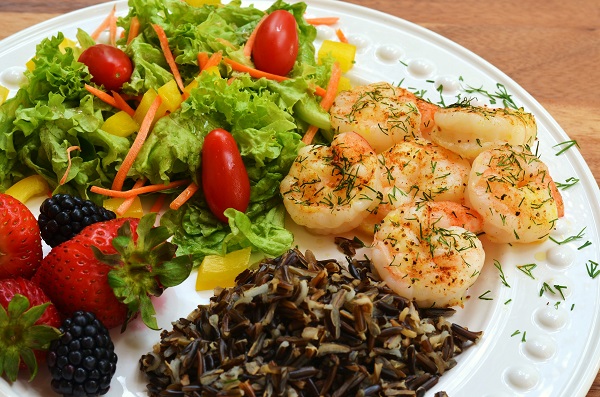
When your blood glucose spikes and crashes from eating processed meals and snacks, your energy level waxes and wanes throughout the day.
Maintaining a healthy glucose level by “anchoring” feedings with protein and healthy fats equates to high energy and productivity all day so that when the day is done, your natural sleepiness occurs at night where it belongs.
So, include protein, healthy fat and unprocessed carbs at each of your meals and snacks.
3. Avoid blood glucose mayhem by eliminating Added Sugar and processed carbohydrates, especially at bedtime.
Eating sugar and processed carbs before bedtime can impair your ability to fall asleep by causing a quick glucose spike and energy surge (think WIRED!).If you must have a small bedtime snack, choose a lean protein or healthy fat and a small serving of whole, unprocessed carbs such as 10 almonds with a small piece of fruit. Otherwise, skip the snack and go to straight to bed!
If you’ve already made some progress trading out sugary foods for fresh, whole foods, take it one step further and reduce Added Sugar to the World Health Organization’s recommendations of less than 25 grams per day. Read this blog for information on Added Sugars.
4. Eat 3 – 4 magnesium-rich foods every day. Magnesium is the “relaxation” mineral.
Magnesium is involved in over 300 essential metabolic reactions in the body, one of which is calming and relaxing the body. Functional Medicine practitioner, Mark Hyman, MD, states magnesium is “the most powerful relaxation mineral available.” It is useful for muscle relaxation, stress reduction and as a mild, natural sleep aid.
Many of us don’t consume enough magnesium and some medications can either impair your body’s absorption of magnesium or cause excess magnesium loss.
To reap the natural soothing benefits of magnesium, INCLUDE THESE foods in your diet every day, especially in the evenings, to enhance your nighttime sleepiness.
For a quick way to remember high magnesium foods, use this acronym: B-G-G-N (Beans, Greens, Grains & Nuts).
You can also consider taking a magnesium glycinate supplement in the evenings.
Taking 200-400 mg of magnesium glycinate in the evenings can promote calmness and sleepiness.
- NOTE: People with kidney disease or severe heart disease should take magnesium supplements only under a health care provider’s supervision.
Talk to your nutritionist or health care provider to see if a magnesium glycinate supplement is right for you.
And, soak in an Epsom Salt bath.
Epsom salt is an excellent source of magnesium. To get some much needed, mood-soothing magnesium, soak in an Epsom salt bath in the early evenings several nights a week. As an added bonus, it can help ease muscle tension and pain. CLICK HERE for a recipe for Epsom Salt Bath.
5. Include ½ - 1 cup of whole, unprocessed carbohydrates with your protein-containing dinner to encourage restful sleep.
Have you ever heard the common myth that gorging on Thanksgiving turkey leads to a Thanksgiving nap? Well, here’s an interesting myth-buster: it’s the carbohydrates in your Thanksgiving meal, not the turkey, that create the need for Thanksgiving ZZZs. READ MORE about how carbohydrates help tryptophan cross the blood brain barrier to help induce quality sleep.
Including ½ cup to 1 cup of whole, unprocessed carbohydrates (LIKE THESE) with your protein-containing dinner promotes relaxation and drowsiness preparing you for a night of restful sleep.
For more information on the turkey-tryptophan myth, click HERE.
6. Stop eating and drinking at least 3 hours before bedtime.
When your body is digesting, it is not resting. And, too much food in your stomach makes it difficult to digest your food in a timely manner. This can lead to symptoms including, belching, gas, heartburn and stomach pain which are not synonymous with peaceful sleep.
In addition, excess liquids too close to bedtime can lead to multiple trips to the bathroom during the night sabotaging your quest for sweet dreams.
For restful slumber with minimal sleep interruptions, keep dinner portions reasonable and stop all food and liquids at least 3 hours before you plan to go to sleep.
7. Eliminate alcohol late in the evening.
Though drinking alcohol can make some people sleepy, multiple research studies have shown that alcohol disrupts sleep during the second half of your nightly sleep cycle when you’re most likely to be in REM sleep.
In addition, research shows the sleepiness some people feel from drinking alcohol will stop with regular nighttime drinking since the body develops a tolerance for alcohol with daily consumption.
CLICK HERE for some flavorful alternatives for alcoholic beverages.
Include some or all of these strategies in your daily nutrition habits to improve your sleep quality and enjoy the health benefits of adequate sleep!
Roasted Butternut Squash Fries
Makes 4 servings
If you know me, you know I roast EVERYTHING!
I was playing around in the kitchen one day pondering recipes for starchy vegetables and it hit me...If potatoes and sweet potatoes can make great fries, why not butternut squash? Turns out, butternut squash makes AMAZING fries!!! So, here they are – Roasted Butternut Squash Fries. All it takes is a good sharp peeler, a sharp knife and a steady hand and your family will be hooked on butternut squash in one meal!
And, on the nutrition side, butternut squash is loaded with beta carotene, potassium, vitamin C and manganese and is a good source of vitamins E and B6, folate and calcium. Butternut squash, like all the winter squashes, is lower in carbs and calories than Irish and sweet potatoes so 1 cup of butternut squash is equal in calories to ½ cup sweet potatoes. And, a 1 cup serving contains 6.5 grams of fiber! Though you can buy butternut squash year round, Fall and Winter are peak seasons so gobble it up now!
Ingredients
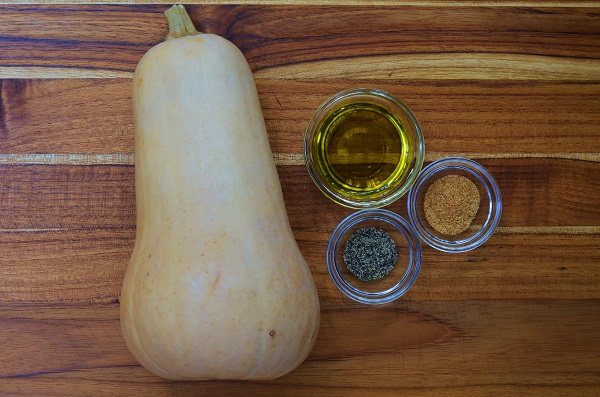
1 (2 or 3 pound) butternut squash
2 Tbsp extra virgin olive oil (EVOO)
½ tsp seasoned salt or sea salt
¼ - ½ tsp fresh ground black pepper
Directions
1. With a sharp vegetable peeler, peel the outside skin off the entire butternut squash – Caution: this will be like wrestling a bar of wet soap so … Be Careful!
2. Once peeled, cut the butternut squash in half lengthwise with a very sharp butcher knife and scoop out the seeds and membranes from the round ball end. Discard or save seeds to roast later (they look like pumpkin seeds).
3. Cut the long neck part from the round ball part. Using the same sharp knife, carefully cut the long neck part into 1/3” planks, then cut 1/3” symmetrical “fries”. For the round bottom section, cut it crosswise into 1/3 inch half-moon shaped fries.
4. Place fries in a ziptop back or stack fries on a baking sheet covered in parchment paper or foil. Drizzle with EVOO and toss gently, coating all fries generously with the oil.
5. Layer the fries in a single layer across the baking sheet leaving plenty of room in between so they will get crispy. (If you push them too close together or layer them on top of each other, they will be mushy instead of crispy.)
6. Sprinkle evenly with seasoned salt and black pepper (you can have a lot of fun with various seasonings – see Seasoning Note below.)
7. Roast fries in a 400° preheated oven for 15 minutes. Then, remove pan and flip the fries over using a spatula (or your fingers but be careful – HOT!).
8. Roast for another 15 minutes or until golden brown on top and bottom.
9. Serve piping hot!
For other seasoning combos try:
- Cumin, chili powder, salt and pepper
- Nutmeg, cinnamon, salt and pepper
- Sage, garlic powder, salt and pepper
What other seasoning combinations will you try?


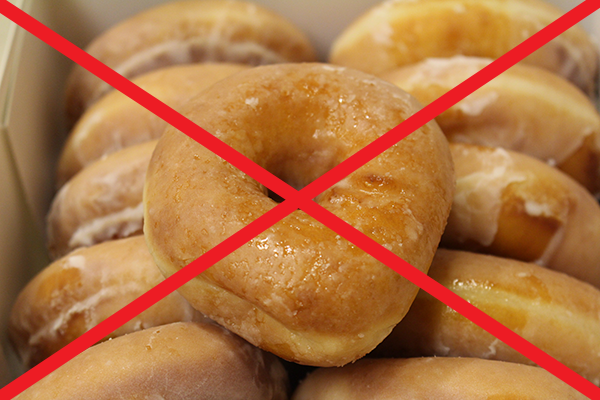



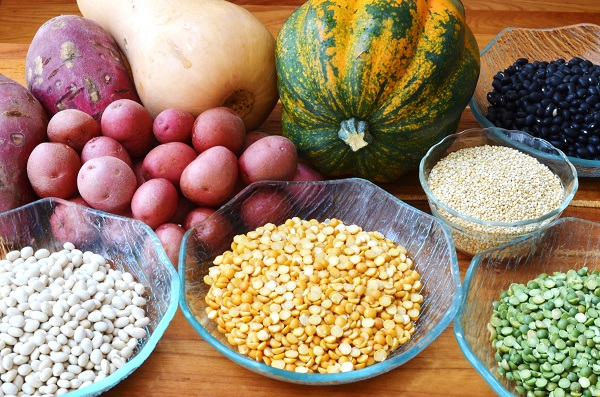
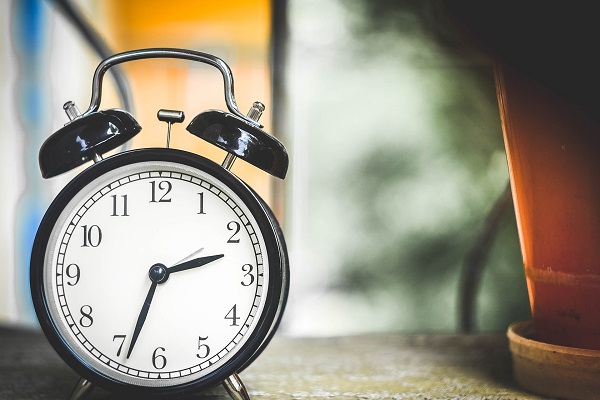

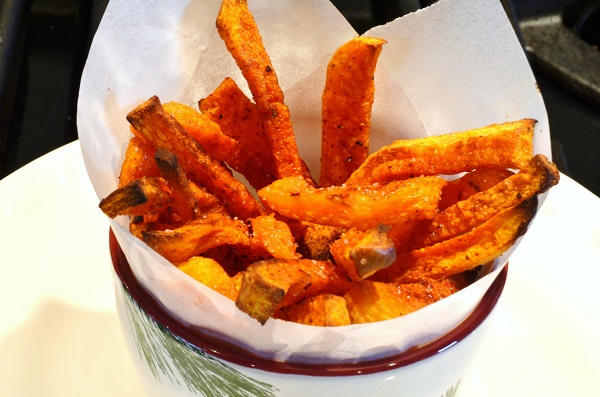
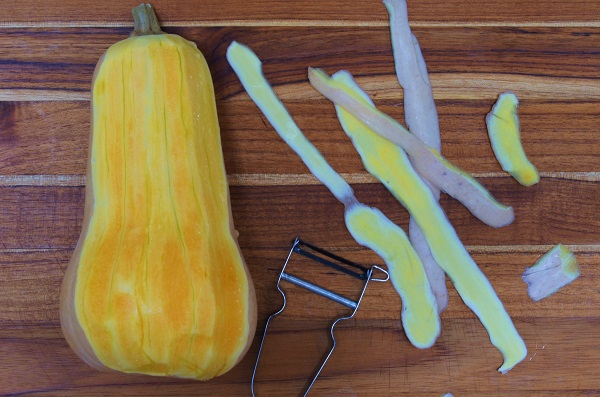
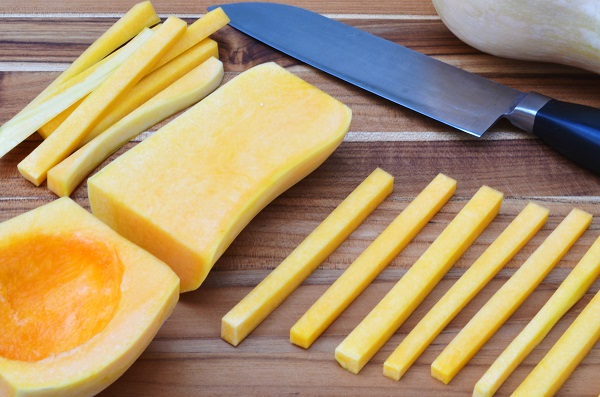

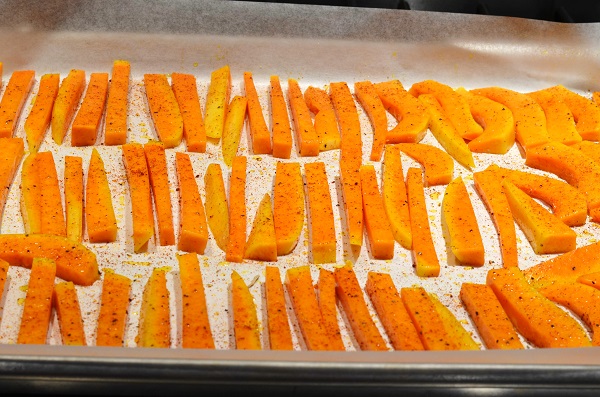
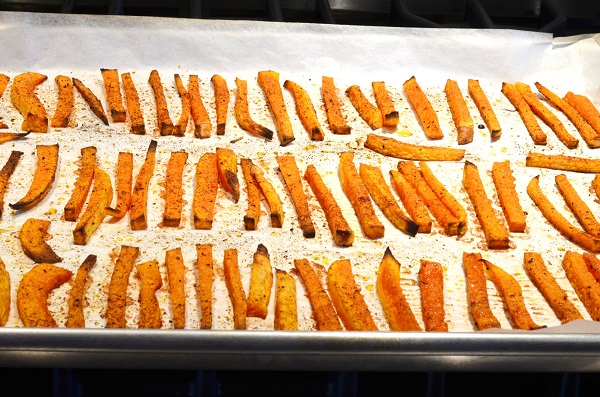
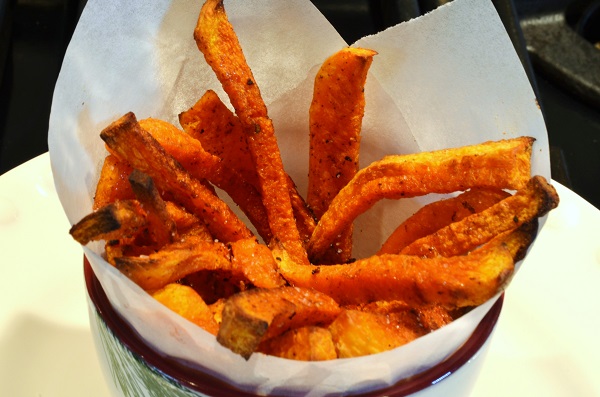
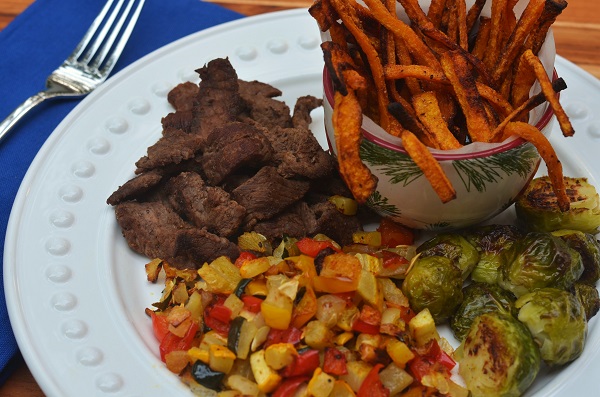

2 Comments
Thanks, Cathy! Those butternut squash fries look awesome. I have two of the squashes on my kitchen counter at home right now... I'll be making some "fries" this weekend for sure. Love the spice combo options as well. Thanks for this and for the whole article. Very helpful!
Thanks, Diane. I hope you enjoy the "fries"! I'm betting you will. And, sweet dreams to you! 🙂